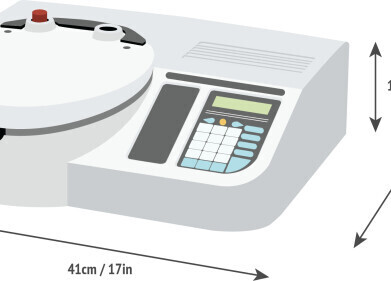Chromatography
How Do Cancer Cells Sidestep Immune Defences?
Feb 05 2021
In a breakthrough for cancer research, scientists at the Memorial Sloan Kettering Cancer Centre (MSK) have uncovered new insight into how malignant cells elude the immune system. The team focussed on a trait known as chromosomal instability, which allows cancerous cells to escape immunological defences and metastasise within the body. The findings have unveiled exciting new treatment options, with scientist Samuel Bakhoum saying it tells researchers a lot about the mechanics and capabilities of cancer cells.
“The elephant in the room is that we didn't really understand how cancer cells were able to survive and thrive in this inflammatory environment," says Bakhoum, a physician-scientist at MSK.
Understanding chromosomal instability
As cancel cells divide, they trigger a process called chromosomal instability which duplicates, mutates and in some cases destroys DNA segments and chromosomes. Bakhoum and his team have linked this process to the aggressiveness of cancer, theorising that the more severe the chromosomal instability, the higher the risk of DNA segments escaping the central nucleus of cell and becoming suspended in the cytoplasm.
Cells then interpret these stray segments as viral warning signs, which triggers an inflammatory immunological reaction. In response, defensive immune cells travel to the site of the tumour and attack it with defensive chemicals. While it sounds effective, in many cases the attack is not enough to destroy cancel cells and they continue to thrive and metastasise within the body.
Shutting down ENPP1
The new MSK study could help explain why the body’s immune reaction doesn’t destroy cancer cells, with the findings published in the journal Cancer Discovery. Bakhoum and his team suggest the ineptitude could be due to a signal-destroying molecule located on the exterior of cancer cells. He says this molecule actively destroys warning signals before they can travel to nearby immune cells, helping to explain why immunotherapy is often ineffective.
To address the problem and empower immune cells, the team experimented with ENPP1, the protein coding gene that encases cancer cells. They found that deactivating ENPP1 boosts the efficiency of immune cells and increases the vulnerability of several cancer types to immunotherapy treatments powered by drugs known as checkpoint inhibitors.
Developing new immunotherapy treatments
Moving forward, Bakhoum hopes to advance the study to clinical trials and fast track the development of new treatments for cancer. "One of the things I would be really proud of is if this research ends up helping patients soon, given that we only just started this work in 2018," says Bakhoum.
From immunotherapy to food safety, science is continually shaping and improving public health. Find out more about the latest techniques being used to monitor environmental contaminants such as Per and Polyfluorinated Alkyl Substances in ‘New Concerns about PFAS in Food: The Convergence of Environmental Contamination and Food Safety’.
Digital Edition
Lab Asia Dec 2025
December 2025
Chromatography Articles- Cutting-edge sample preparation tools help laboratories to stay ahead of the curveMass Spectrometry & Spectroscopy Articles- Unlocking the complexity of metabolomics: Pushi...
View all digital editions
Events
Jan 21 2026 Tokyo, Japan
Jan 28 2026 Tokyo, Japan
Jan 29 2026 New Delhi, India
Feb 07 2026 Boston, MA, USA
Asia Pharma Expo/Asia Lab Expo
Feb 12 2026 Dhaka, Bangladesh



















